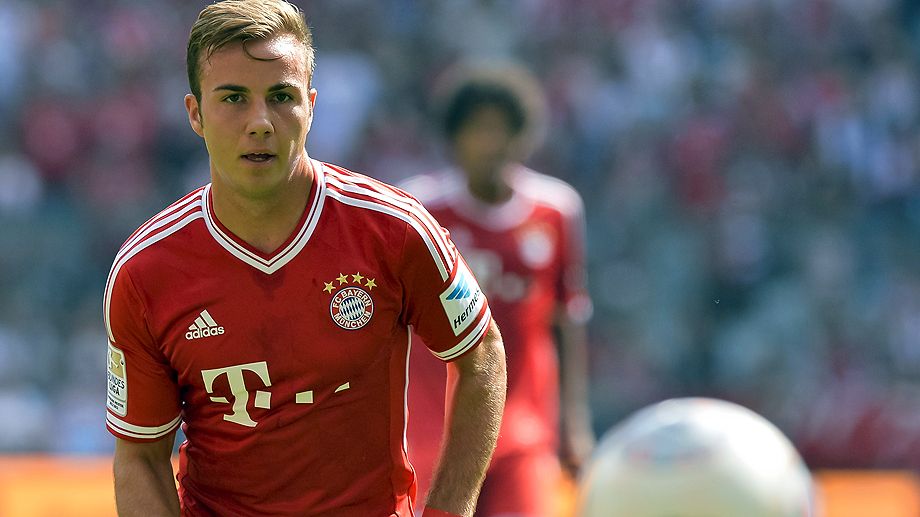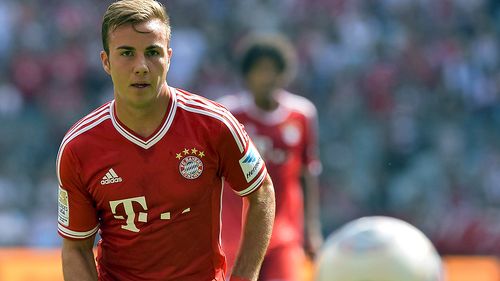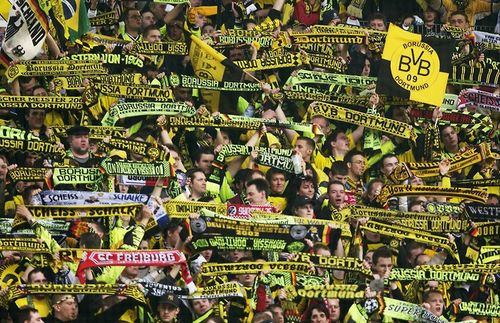
Of Mario Gotze and Borussia Dortmund's shot at greatness

The 23rd of November 2013.
Remember the date. Clear out your schedule and tune in for a match-up that will perhaps have more intensity than any other this time around.
Why, because old boy Mario Gotze is coming home!
Now, if that isn’t a cause for celebration, then nothing is.
Assuming, of course, that the word “celebration” now roughly translates to “hatred possessing the burning rage of a thousand suns”.
In a sport that is ultimately a quest to prove one’s identity, Mario Gotze did the equivalent of spitting on that very identity when he decided to jump ship to the regal surroundings of Munich.
The move has perhaps elevated Gotze to a plane from where there is no return, no forgiveness. What made the betrayal even more unpalatable to the Dortmund faithful was that Gotze happens to be a product of Dortmund’s own youth system.
A true son of the soil then. One who has been at the club since the age of eight. Watching his rapid progression through the ranks, Dortmund fans would’ve been forgiven for thinking of the young Gotze as the flag-bearer and symbol for their club.
One who was perfectly in sync with the very image of a club in ascent – dynamic, fresh and most importantly, a challenge to the established power in Bayern Munich.
The infinite promise and potential of youth can often be intoxicating, and Dortmund was swept away in the sea of change that was afoot in the Bundesliga. Their brand of football was winning plaudits the world over, but life is far from perfect, certainly in the wonderful world of football.
What Borussia Dortmund desire – what any club desires, really – is to build an identity for themselves that appeals to a wider audience. One that tells the world -“This is us! This is who we are! This is why we fly our flags so proudly”.

Arsenal are famed for their slick style of play, and their focus on youth development. Manchester United have had a glorious tradition of fantastic wingers, in what is also a tribute to the English game. Real Madrid are an all-white band of knights – the chosen ones who call themselves The Galacticos.
Barcelona are the ultimate club in this regard – their identity is so all-consuming, so deeply etched in the very psyche of the players, that you will hardly come across a La Masia graduate who’s technical ability does not fail to astonish.
Dortmund, in trying to build their own identity, are losing out because the very assets that make them a force are unwilling to fight for this identity. This is in essence why the established powers in the world of football continue to call the shots.
Kids that take to the game dream of playing for the Manchester Uniteds and the Real Madrids of the world. And when the chance arrives, they jump at it without as much as a second thought. Nuri Sahin’s Madrid adventure didn’t go quite as planned, and Shinji Kagawa’s red-tinted one looks to be going the same way.
But even here, Gotze finds himself in a markedly different situation, being a Dortmund boy through and through. The youngster should’ve been proud to be the symbol of a club that was punching far above its weight on the big stage, and relished the chance of creating some history of his own.
Instead, in selling out, he has chosen the easy way out – Bayern look like overwhelming favorites on the domestic front, and it is difficult to see things any differently on the European stage as well.
Apparently, the chance to work with Pep Guardiola is not one the young prodigy could pass up on. Be that as it may, it seems to imply that the man who nurtured his precocious talent is not worth the time and effort.
Jurgen Klopp is one of the most sought-after managers on the scene today, even if he has recently signed a long-term contract with Borussia Dortmund. But he has unfinished business here yet, and will likely stay until he feels he has done everything in his power to disrupt the balance of power that resides firmly in Bayern’s grasp today.
The question remains – how much can he do? But it is in this question that the true significance of Dortmund’s rise lies. In daring to dream, Die Borussen have proved that they can stand up to the might of the Bayern juggernaut.
But now, when the old enemy has risen, stronger than ever before, can Dortmund find within themselves the same appetite for a fight? Do they possess that hallmark of champions that pushes them to a plane that mere mortals can only remain in awe of?
The ability to rise from the depths of defeat – that is what separates the very good from the truly great. And Borussia Dortmund, in their quest for identity, will soon find out if they can one day take their place among the footballing superpowers.
But for that to happen, they need their players to rise above such questions of money and grandeur – and see that this club has a genuine chance at creating their own history.
It is one thing to be associated as a great player at a great club – quite another to be regarded as the players who brought greatness to a club. Mario Gotze has taken the coward’s way out – and like true champions Dortmund should use the motivation behind that betrayal as a catalyst.
When they see the youngster line up against them tomorrow in the regal red of Bayern, they must prove to him that he made a grave error in not daring to dream.
Curiously, they only need to look at Gotze’s new team-mates if they were short on inspiration. The Bayern Munich of today deserves its place in the pantheon of greats because their players refused to let defeat define them.
Dortmund must prove themselves worthy of the same greatness.
And who knows, generations from now, the Dortmund faithful may still chant the names of these heroes, the men who announced their arrival on the grand footballing stage.
And by then, the name of Mario Gotze may well be all but forgotten – a minor hiccup in a journey that saw so much more.